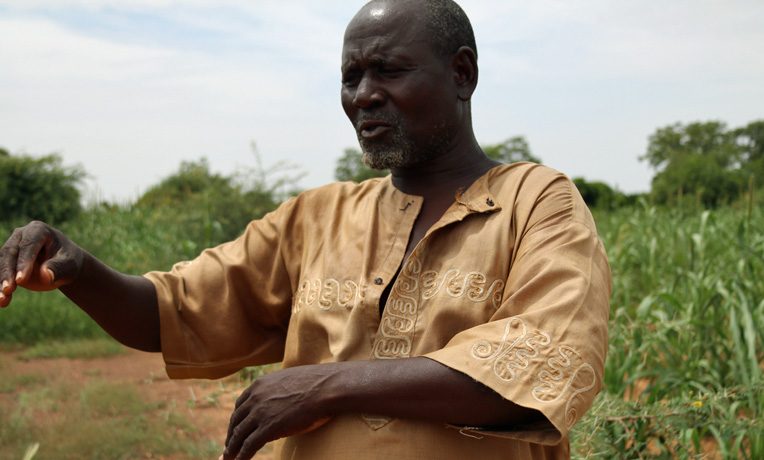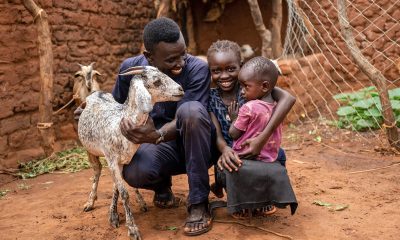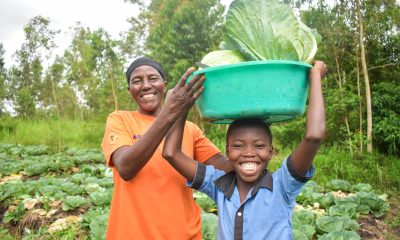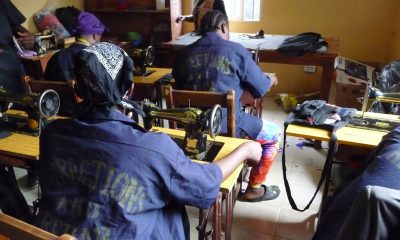Farmers in Niger have difficulties growing enough crops to feed their families. Rain only falls for a few months of the year, leaving the soil dry and almost incapable of producing a harvest. However, the farmers are learning new ways to develop their fields.
I met with a farmer in Tchiroudi, Niger, who is part of the ALFARI project with Samaritan’s Purse. ALFARI stands for Assisting Local Farmers to Adopt Resilient Improvements, and the word “alfari” means “farmer” in Djerma, one of the local languages. This project gives improved seeds to farmers and teaches them better agriculture techniques so that their crops will grow faster and stronger than before. One technique, for example, is planting millet with enough space between the seeds so that the plants aren’t overcrowded.
Another technique is the use of zai holes. This is where holes are dug and fertilized before the seeds are planted in order to catch rain and prepare the soil. On this particular farm, it’s the second year using zai holes, and there has already been an improvement in the results.
“Before I used zai holes, even if I planted seeds, they would not grow,” the farmer explained.
It wasn’t hard to imagine when he pointed out the dryness of the soil. Last year, though, his farm produced more than 750 pounds of sorghum as a result of using the zai holes.
Even other farmers in the area have noticed the difference: the crops from the ALFARI project have a shorter growth cycle, which means that other farmers have to start planting much earlier. The farmers with the ALFARI project have been able to share some of the techniques they learn from the project, helping other farmers to better cultivate their crops even without improved seeds.
The farmer I interviewed in Tchiroudi told me that because of the techniques from the ALFARI project, he has received more than enough food for his family; he’s even been able to give to other families and sell some of his crops. He hopes to use the money from his sales to buy a plow and hire temporary workers so that next year, he can expand his farm even further. It’s been a challenge for him to cultivate the field—he currently works the land with his hands, and though his son helps him, it’s a lot for them to manage alone.
The farmer gestured to the open space in the field where we stood.
“I will fill this in with zai holes,” he said. “I will continue to use the zai holes this year.”
With the zai holes and the techniques he’s learned from the ALFARI project, the farmer can anticipate what his fields will provide and look to the future with optimism.
“I am praying for the rains to come,” he said. “I know I will have good results here.”







